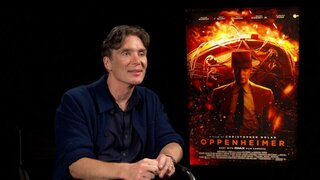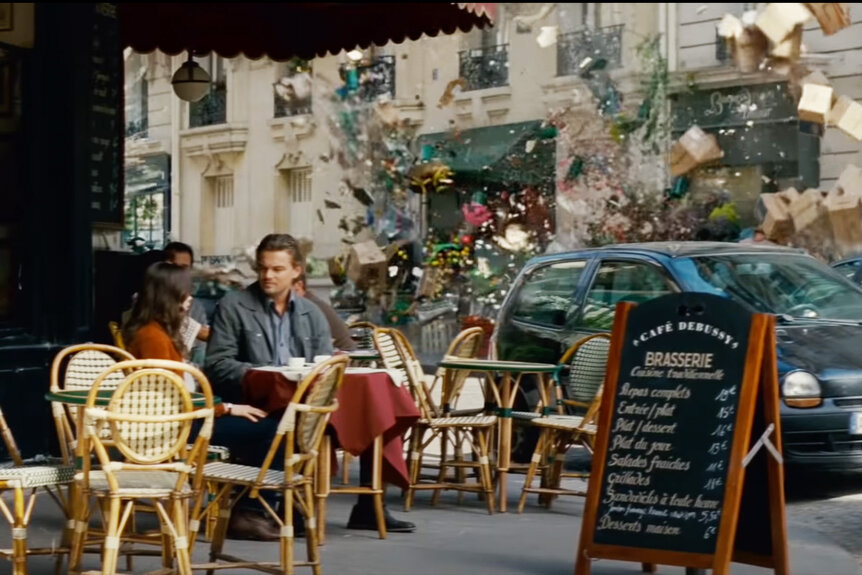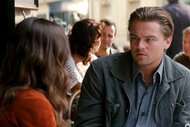Create a free profile to get unlimited access to exclusive videos, sweepstakes, and more!
Why Aren't the Dreams in Inception a Lot Weirder? Christopher Nolan Has an Answer
Cobb getting chased by a monster or showing up to an exam in his underwear was out of the question.
Have you ever given much thought to how bizarre the process of dreaming really is? The X (formerly Twitter) user known as @TarotReaderPete sums up the experience rather perfectly: "We literally go into a lucid coma for 8 hours a night, slip through the veil of reality, and experience inexplicably complex hallucinations, and then suffer amnesia about it in the morning."
At the same time, however, dreams are a wonderfully liberating thing, because they allow us to live out the wildest scenarios that could never come true in the waking world.
The strange ingenuity of our subconscious mind during REM sleep is what inspired Christopher Nolan to dive headfirst into the subject with 2010's Inception. Now streaming on Peacock, the mind-bending blockbuster centered around a group of suave dream thieves was envisioned as an exploration of "the exciting possibilities and infinite potential of the human mind," the director explains in one of the DVD's supplementary features.
Why aren't the dreams in Christopher Nolan's Inception a lot weirder?
Aside from a number of Escher and Dalí-esque visuals featured throughout the film (like those paradoxical stairs, the streets of Paris folding upward, and the crumbling buildings on the shores of Limbo), Nolan doesn't go for the complete surrealist effect. The environments, people, and activity of each dreamscape are, for the most part, fairly straightforward. Monsters popping out from under beds, people showing up to a crucial exam in their underwear, and all the other non-sequiturs we can't explain upon waking are nowhere to be found.
While that may sound like a critique on a lack of imagination on the part of the filmmaker, it actually helps to underscore Nolan's desire to establish a concrete set of ground rules for the quasi-futuristic concept of dream-sharing. Because dreams are so subjective (i.e. they vary wildly from person to person), Inception had to follow universally agreed-upon preconceptions, so as not to alienate viewers.
"There are certain things that we take to be common enough that people will be able to relate," Nolan explains in the above mentioned featurette. "The idea that you can’t die in a dream; when you die in a dream, you wake up. Things like the kick, the feeling of falling, of snapping you awake. That seemed a very common thing. In talking to people, it seemed something that people really recognized. It felt really important to try and incorporate any of the really familiar touchstones of what it is to dream — any of the things that are universal [and] could allow the audience to relate their own experience of dreaming to this … fantastical set of events."
Moreover, keeping the weirdness to a minimum seemed like the right direction for a heist movie, which is all about "the subtle art of conning somebody, of fooling somebody," Nolan tells his brother, Jonathan, during a Q&A printed in the official screenplay tie-in book. That guiding principle also served as a response to The Matrix, which was obviously a massive influence on the world of Inception.
"I was definitely looking for a reason to impose rules in the story during the writing process. When I saw the first Matrix film, I thought it was really terrific, but I wasn't sure I quite understood the limits on the powers of the characters who had become self-aware," he continues. "Inception, on the other hand, is about a more everyday experience with dreaming. It doesn't question an actual reality. It's just saying, 'Okay, we all dream every night. What if you could share your dream with someone else?' And it becomes an alternate reality simply because the dream becomes a form of communication — just like using a telephone or going online. I wanted it, then, to have a rule set, a set of reasons that you could graph for why it's not chaos and anarchy — for why it has to be order, and why you need architects and an architectural brain to create the world of the dream for the subject to enter."
Inception is now streaming on Peacock.































